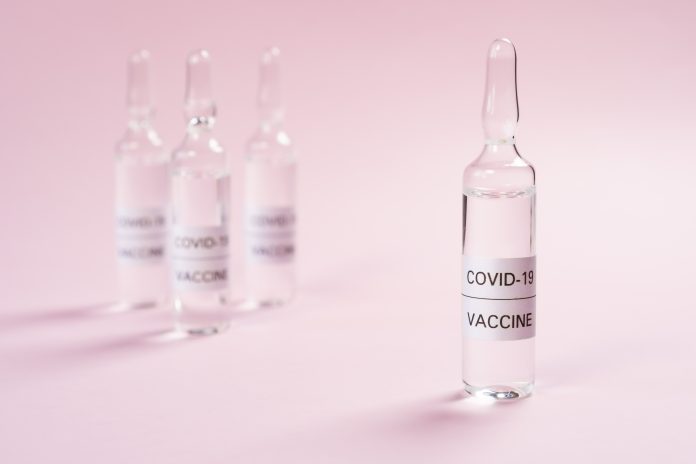Professor Herb Sewell, expert in immunology, wrote that the UK Government should not rely on one dose of the vaccine – suggesting that the diluted vaccine could encourage mutations to evolve
The immunology expert based at Nottingham University, writing for the Daily Mail, commented: “But I firmly believe that they should be used as they were intended to be. And that by delaying the second dose we could be making a terrible mistake.”
The professor points out that the Pfizer vaccine requires the second dose to be given three weeks after the first, for the best percentage of protection. In the UK, the vaccination policy is to get every vulnerable person a first dose – meaning that the second dose is expected 12 weeks later.
Two key fears are outlined by Professor Sewell:
- That the amount of efficiency in one dose won’t protect people, especially those who are older;
- And that the mutations already seen in the UK will use the low-efficiency to further mutate into a vaccine-resistant form.
Vaccine efficiencies have been calculated by manufacturers in clinical trials, with new Israeli data suggesting that a singular dose does not give adequate protection against COVID-19.
How true is this one dose warning?
Another UK-based scientist dismisses the fears
Professor Stephen Evans, Pharmacoepidemiology, London School of Hygiene & Tropical Medicine, said: “It is vital that advice and policy take into account the latest available data. However the reports that have come from Israel are insufficient to provide any evidence that the current UK policy in regard to delaying the second dose of vaccines is in any way incorrect.
“It is also important to recognise that efficacy against detected COVID-19 may be less important in the UK context then efficacy against hospitalisation and death. It was suggested from the randomised trials that efficacy against hospitalisation was greater than that against detected COVID-19 cases.”
The US Food and Drug Administration throws weight behind dosing schedules
Commissioner of Food and Drugs at the Food and Drug Administration, Stephen M. Hahn, commented: “We have been following the discussions and news reports about reducing the number of doses, extending the length of time between doses, changing the dose (half-dose), or mixing and matching vaccines in order to immunize more people against COVID-19.
“Without appropriate data supporting such changes in vaccine administration, we run a significant risk of placing public health at risk, undermining the historic vaccination efforts to protect the population from COVID-19.”
However, the Israeli study remains without peer review at this time.
As more becomes known about the efficacy of a single dose, the UK can further understand if it works properly or not. With States like New York running out of vaccines, it appears that a double-dosage is currently out of reach despite – despite the clinical recommendations.












Utterly irresponsible. I am undergoing combined chemo/immunotherapy along with taking dexamethasone (steroids) for lung cancer and had my first pfizer jab on 20 January during my treatment. This treatment is well known to cause immunosuppression and reduce the efficacy of the vaccine, having to wait 12 weeks for the second dose is playing Russian roulette. When in doubt, they should at least stick to the widely recommended 3 weeks interval for the pfizer rather than guesstimate based on wishful thinking from “top scientists”, for the AZ vaccine though it seems that 12 weeks improves the efficacy of the boost so maybe the pfizer vaccine should be reserved to high-risk people like me for them to get the second dose in 3 weeks and also get people that already had covid only the second dose as they already have antibodies, and roll out astrazeneca to the rest of the population with the 12 weeks gap. Doing otherwise is a total waste. Shaking my head…